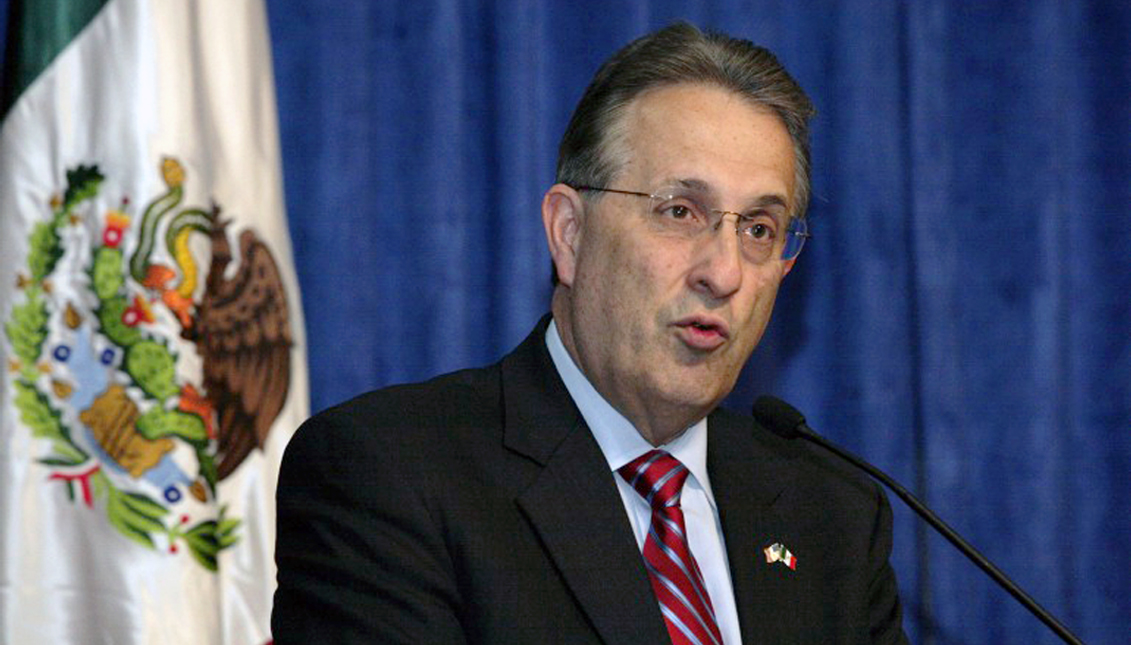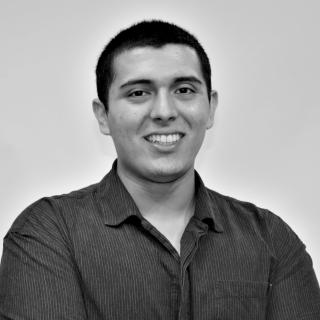
Former U.S. Ambassador Earl Anthony Wayne reflects on AMLO’s meeting with Trump and Latin America
With a diplomatic career spanning 40 years, Ambassador Wayne sat with AL DÍA to provide insight into some of Latin America’s most contentious matters.
Earl Anthony Wayne was attracted to the foreign service from a young age when he became fascinated with other countries, particularly how their culture and history was different from his own.
He began to ponder the tough questions, like how countries fall into certain styles of government. What steps led to the adoption of a democracy, communism or a dictatorship?
The California native took his desire to learn about all the corners of the world and how they can work together to his years in higher education.
After graduating from the University of California, Berkeley, he went on to obtain graduate degrees from Stanford, Princeton and Harvard University’s JFK School of Government.
Once he finished his studies, he had already decided what the next phase in his life was going to be.
“I decided ‘no I don’t want to be a professor’ but I would like to practice trying to get countries to work together and bring about improvements in the world,” Ambassador Wayne said.
Passing the exam to go into the U.S. diplomatic service allowed him to work for the State Department on multiple missions over 40 years.
His most recent positions include serving as Assistant Secretary of State for Economic and Business Affairs from 2000 to 2006 as well as U.S. Ambassador to Argentina from 2009 to 2011.
He then was ambassador to Mexico from 2011 to 2015.
“The option that was open at the moment when I had finished in Mexico was going back to a very conflict ridden part of the world and I thought maybe I’d like to try something else for a little while,” he said.
He has kept very busy in recent years by working in the private sector, contributing to think tanks and has now returned to academics as a professor teaching diplomatic practice at American University.
Wayne says that he finds it rewarding to engage with the future of America’s representation abroad to help them become “the new energy and innovative spirit” in diplomacy.
Mexican president Andrés Manuel López Obrador made his first foreign visit on July 8 to Washington D.C. to meet with president Donald Trump. The meeting was organized primarily to celebrate the United States-Mexico-Canada agreement (USMCA) going into effect.
Ambassador Wayne believes that both leaders had much to gain from this meeting in terms of domestic politics.
“For Trump it was about overcoming some of the image of how much he’s criticized Mexico and Mexicans over the last four years. And I think from his perspective demonstrating that despite the harsh rhetoric, now there was a workable relationship,” he explained.
Wayne also noted president Trump’s previous attitude towards Mexico also prevented their former president, Enrique Peña Nieto, from visiting him in March 2018.
In 2016, Trump made a campaign promise of having Mexico pay for a wall stretching across the southern border to halt migration coming from them and Central America.
The Washington Post reported that the 2018 meeting was called off because Peña Nieto would not agree to publicly state his country would pay for the border wall. The debate was no longer an issue once AMLO took office.
The main conflict between the two North American leaders leading up to their meeting was that in 2019 Trump had threatened Mexico with tariffs so they would ramp up efforts to control the flow of migration coming from Central America.
Those tariffs never went into effect, but the Ambassador detailed how both countries can pair up to tackle the root causes that put thousands of people from the Northern Triangle in the desperate position of having to make the dangerous trip to the U.S. southern border.
The first part of his solution is to strengthen the economies of Mexico and the countries in the Northern Triangle so that there is an increase in job opportunities.
RELATED CONTENT
The next step is understanding that many people are fleeing the violence brought on by the international drug trade. Wayne recognizes here that a better justice system is needed to combat both the supply and demand of the drug trade.
He believes that a well implemented USMCA has the potential to create a good framework for trade that will allow the economies of the three countries involved in the agreement to grow significantly.
The USMCA replaced the North American Free Trade Agreement (NAFTA), that went into effect in 1994 and the Ambassador explained how the deal has been modernized.
“[The USMCA] created a new committee on the competitiveness of North America. The goal of that committee is to talk about the issues that are affecting how competitive the United States, Canada and Mexico are in the world and what we should do together to deal with that. So that could cover some of these artificial intelligence and new technology areas,” he said.
Beyond this, Wayne suggests that the region could mitigate the effects new technology can have on the workforce by investing in job retraining programs and having high schoolers graduate with higher skills than what is currently required.
Another recent Latin American issue Wayne discussed with AL DÍA is its handling of COVID-19.
The virus has spiraled out of control in the Latin American region to the point where the presidents of Bolivia, Brazil, Honduras and the Dominican Republican have all contracted the virus.
Wayne was an ambassador to two of the largest countries in the area and commented on the conditions that led Latin America to become the epicenter of the novel coronavirus.
“It was an unprecedented situation for Latin America. You had these wide variety of approaches and in some cases people understood what they needed to do, but they didn’t have the doctors or the hospitals or the equipment to handle this,” he said.
Both of the countries Wayne served as an ambassador to in the region, Mexico and Argentina, signed an accord in August with British pharmaceutical company AstraZeneca to produce between 150 and 250 million doses of their promising COVID-19 vaccine to later distribute it throughout Latin America.
“I know in the case of Argentina, they have a long history of having done these clinical tests with various Western countries very successfully and without large negative effects. So my assumption is this is part of the reason the company was interested in working with these governments,” Wayne said.
The Carlos Slim Foundation helped secure this deal and it will allow poorer countries in the region to purchase doses at a subsidized cost therefore not leaving them behind.
Brazil and Venezuela are still open to testing alternative vaccines released from laboratories in China and Russia. The ambassador believes that the two South American countries are free to test any vaccine they want but they should be cautious that it will not cause more harm to their people.











LEAVE A COMMENT: